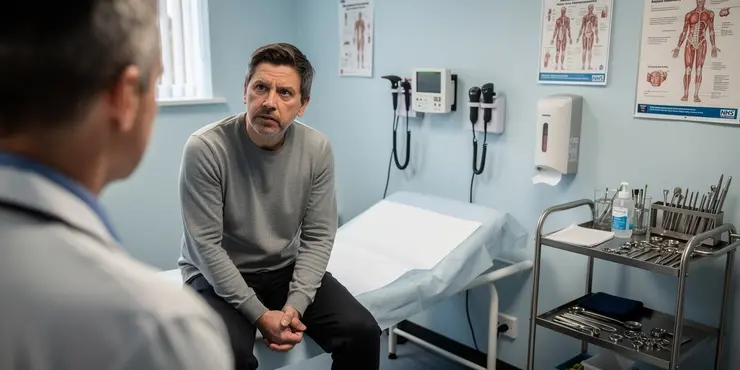
Find Help
More Items From Ergsy search
-
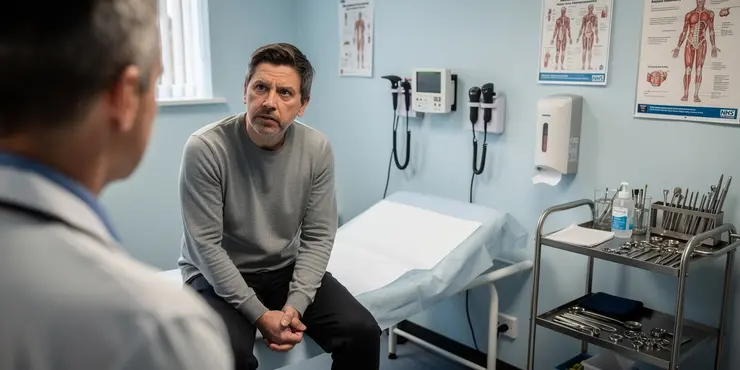
What happens if appendicitis is left untreated?
Relevance: 100%
-
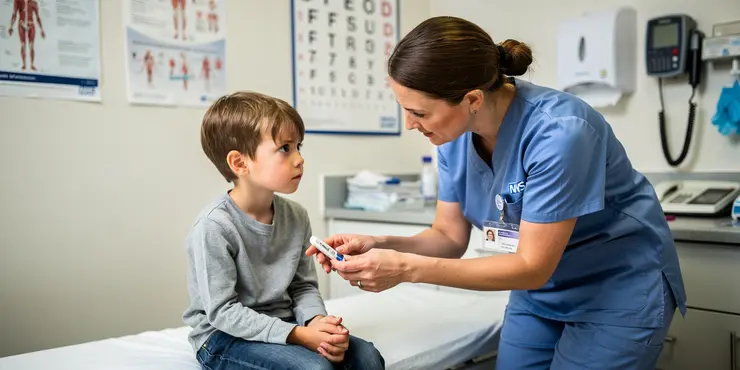
What causes appendicitis?
Relevance: 72%
-
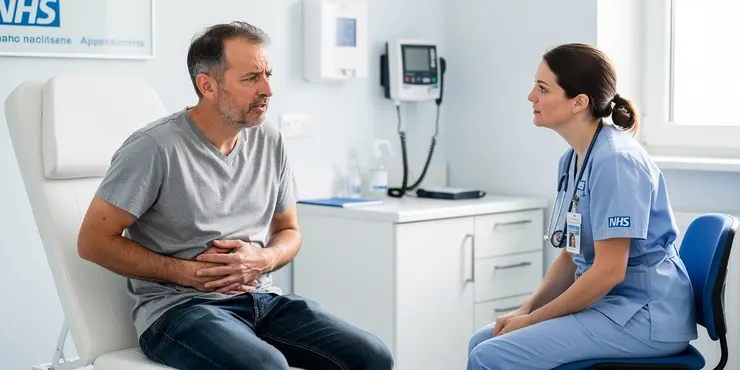
What are the potential complications of appendicitis?
Relevance: 70%
-
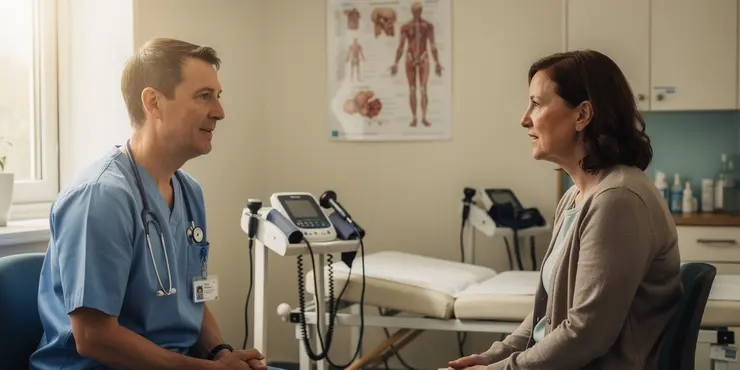
Is appendicitis hereditary?
Relevance: 70%
-
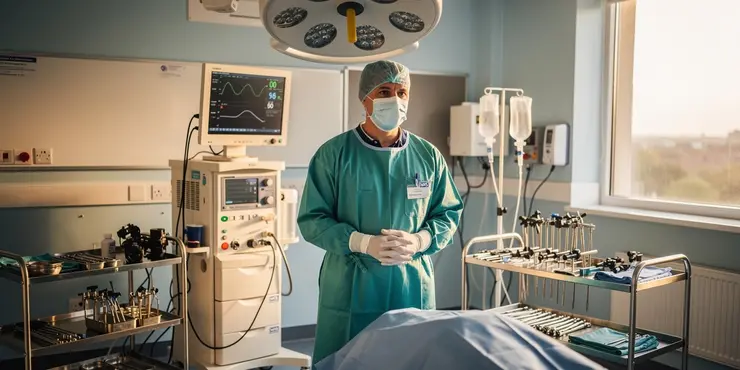
What is the treatment for appendicitis?
Relevance: 69%
-
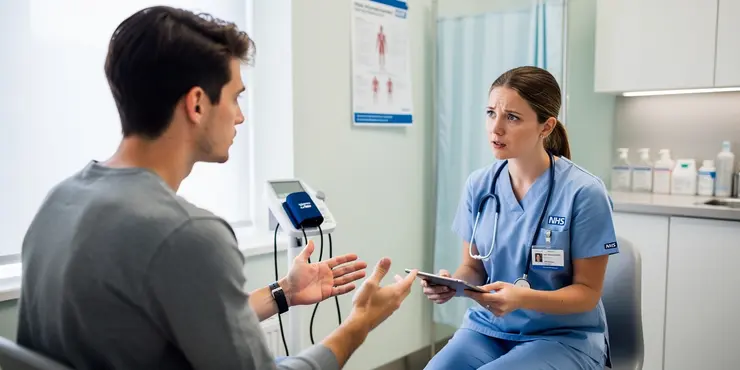
What is Appendicitis?
Relevance: 69%
-

Can appendicitis go away on its own?
Relevance: 65%
-
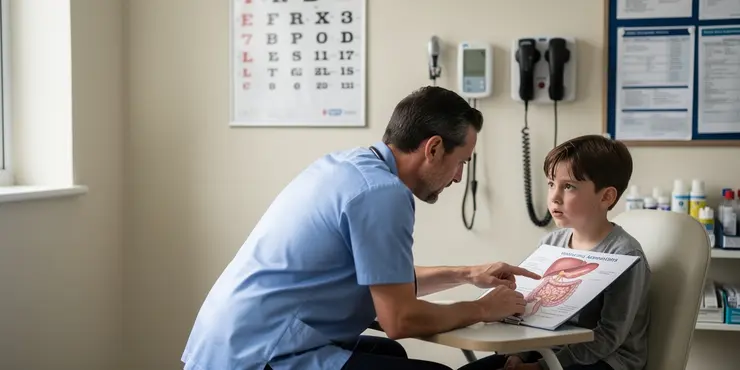
What is the likelihood of needing surgery for suspected appendicitis?
Relevance: 65%
-
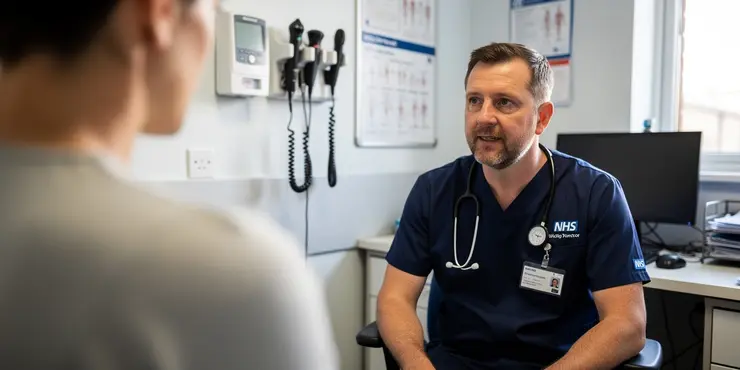
How is appendicitis different from other causes of abdominal pain?
Relevance: 63%
-
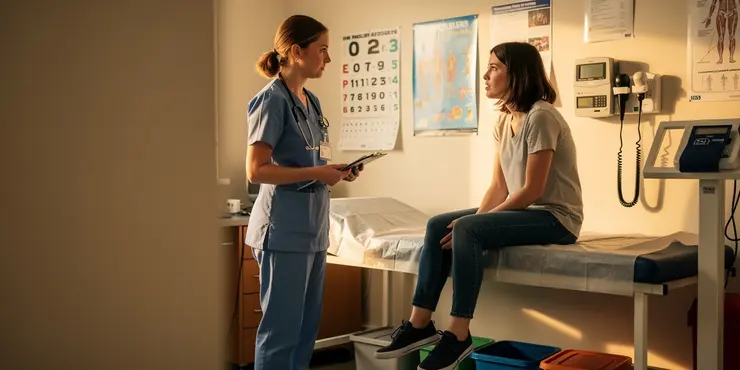
How is appendicitis diagnosed?
Relevance: 62%
-
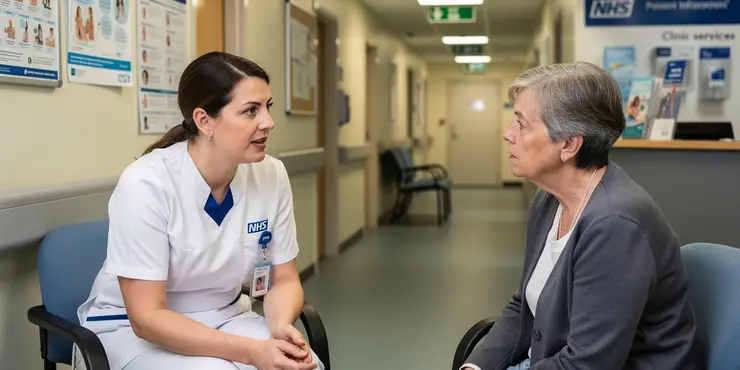
Can appendicitis occur more than once?
Relevance: 61%
-
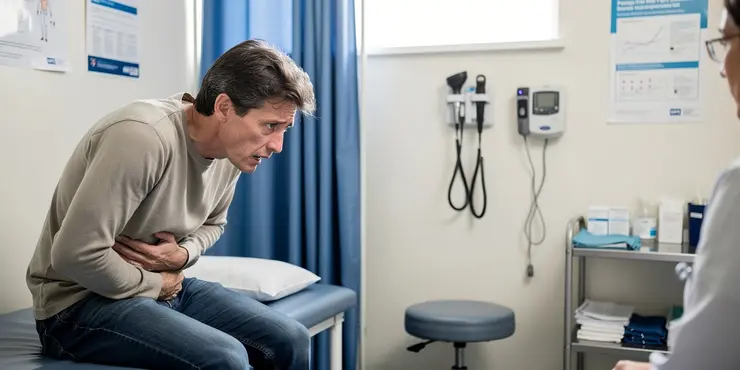
Where is the pain located when you have appendicitis?
Relevance: 58%
-
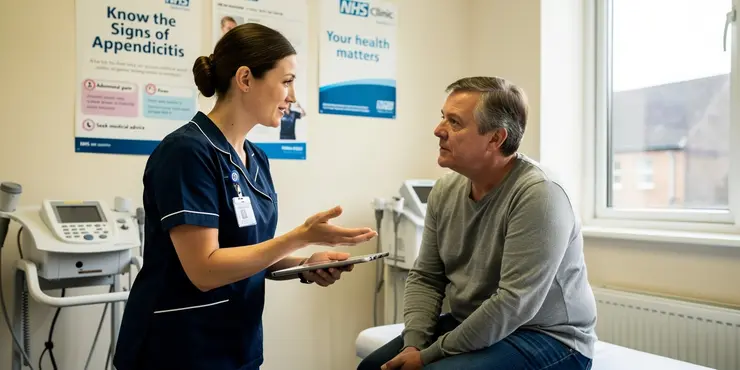
What are the common symptoms of appendicitis?
Relevance: 58%
-
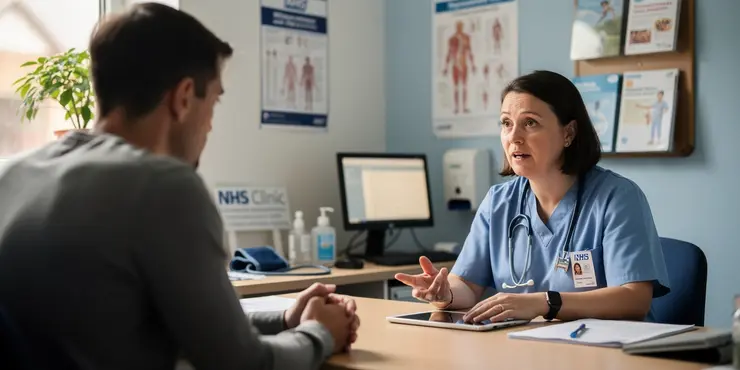
Can appendicitis be treated with antibiotics?
Relevance: 58%
-
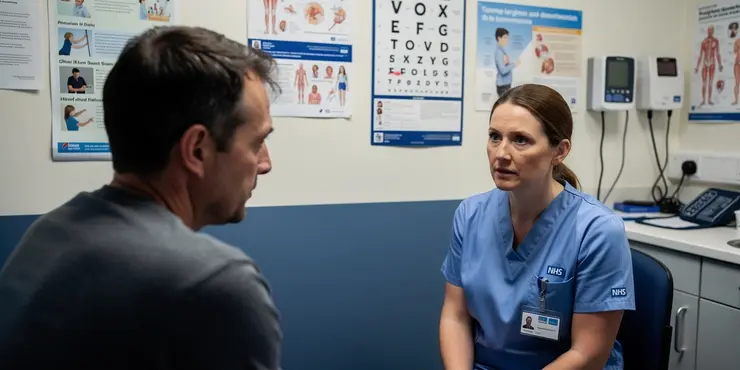
How soon should you see a doctor if you suspect appendicitis?
Relevance: 57%
-
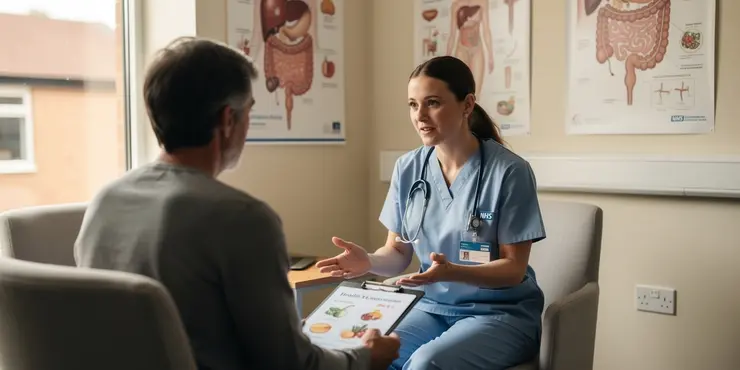
Can diet or lifestyle changes prevent appendicitis?
Relevance: 55%
-
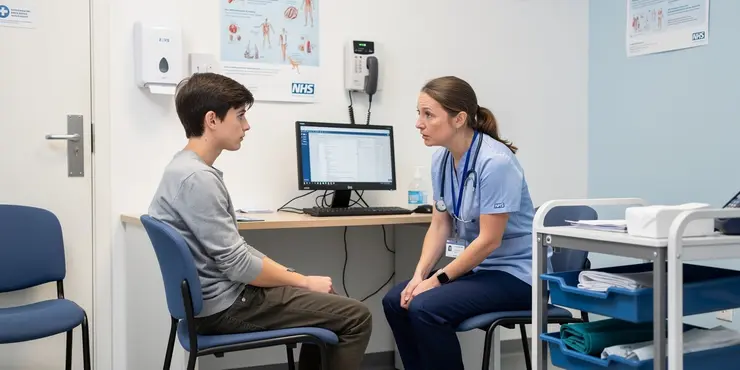
Is appendicitis common in any particular age group?
Relevance: 55%
-

Are there any risks associated with untreated ADHD?
Relevance: 47%
-
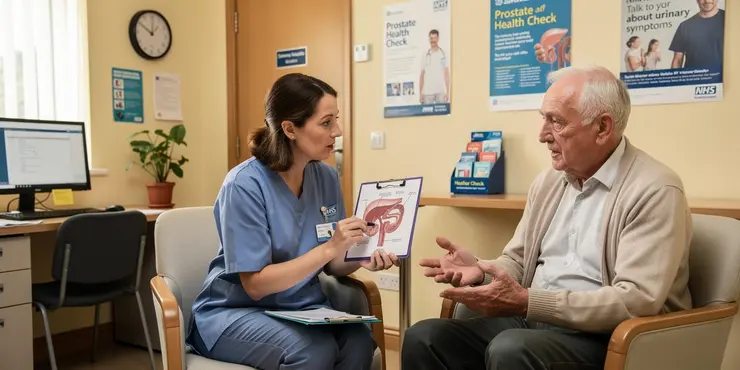
Are there any complications associated with untreated BPH?
Relevance: 47%
-
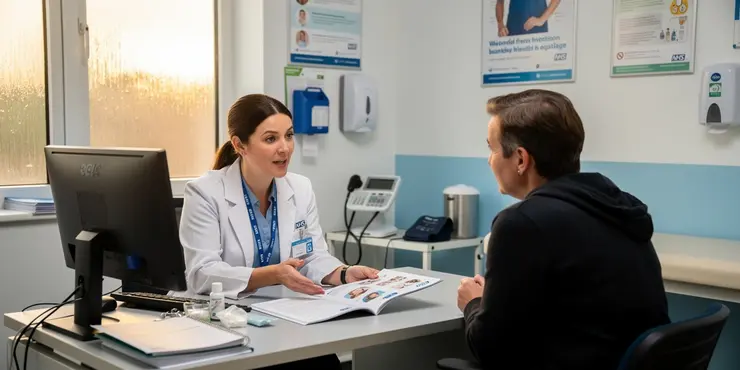
What is the mortality rate of untreated bubonic plague?
Relevance: 44%
-

What happens if Lyme disease is left untreated?
Relevance: 43%
-
What are the long-term effects of untreated eating disorders?
Relevance: 42%
-
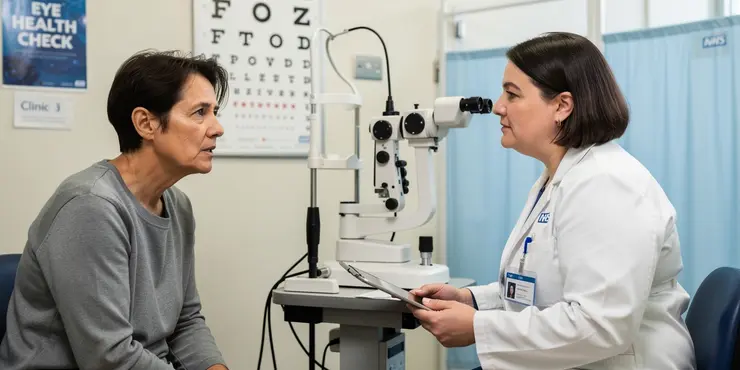
What complications can arise from untreated hypotony?
Relevance: 42%
-
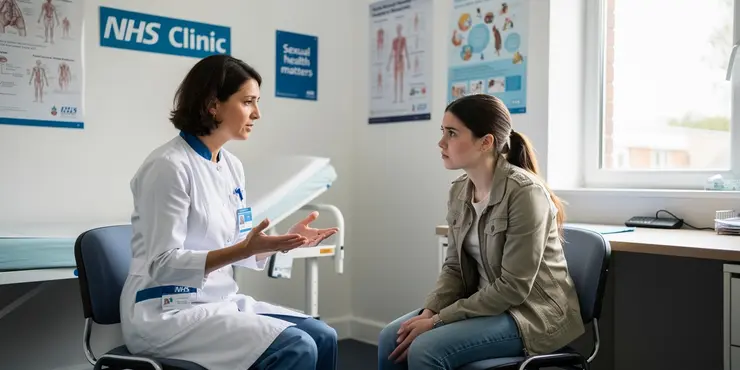
Can gonorrhoea cause complications if left untreated?
Relevance: 34%
-

Can you live without an appendix?
Relevance: 27%
-

Are there any risk factors for appendicitis?
Relevance: 26%
-
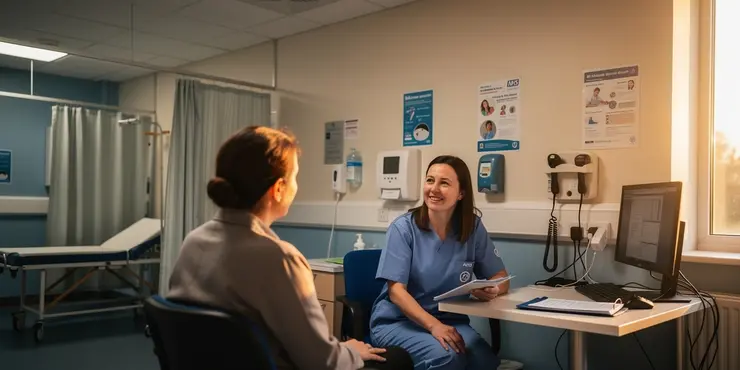
Are there any long-term effects of gonorrhoea?
Relevance: 17%
-

Stomach ache and abdominal pain
Relevance: 15%
-
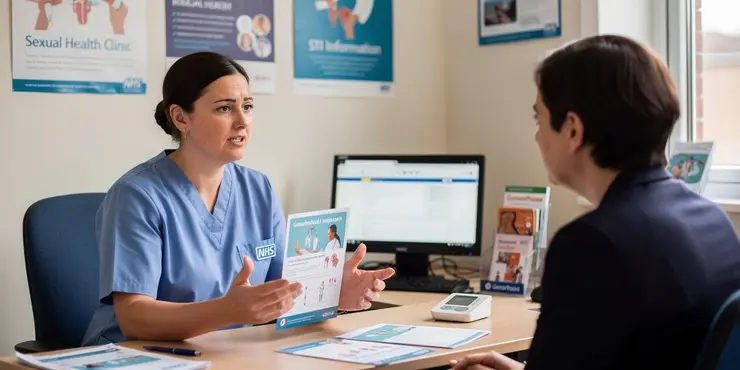
What is Gonorrhoea?
Relevance: 15%
-
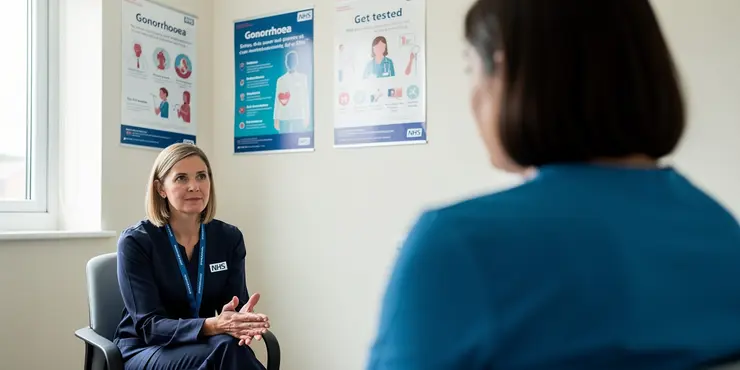
Can gonorrhoea be asymptomatic?
Relevance: 13%
-
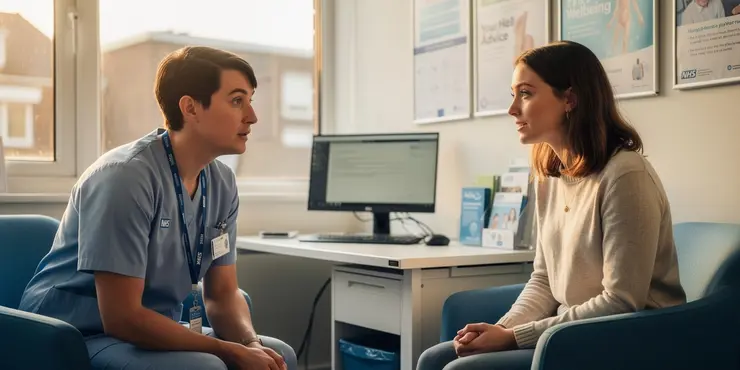
What is chlamydia?
Relevance: 13%
-
Chlamydia: The Silent Threat
Relevance: 13%
-
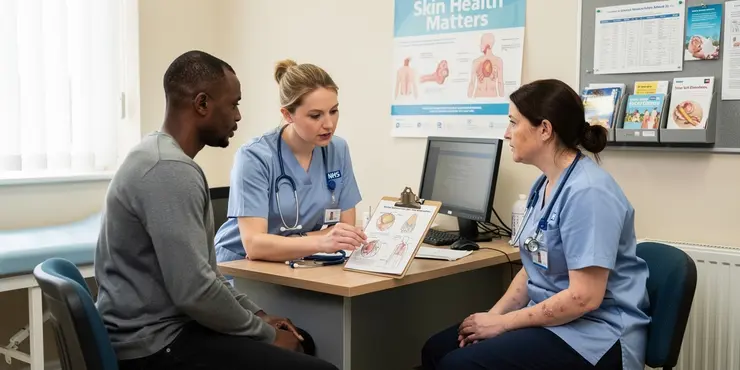
Can scabies cause complications?
Relevance: 13%
-
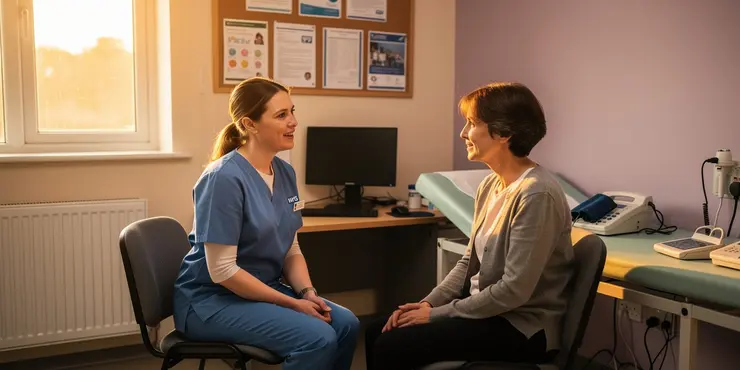
Why is sleep apnea dangerous?
Relevance: 13%
-
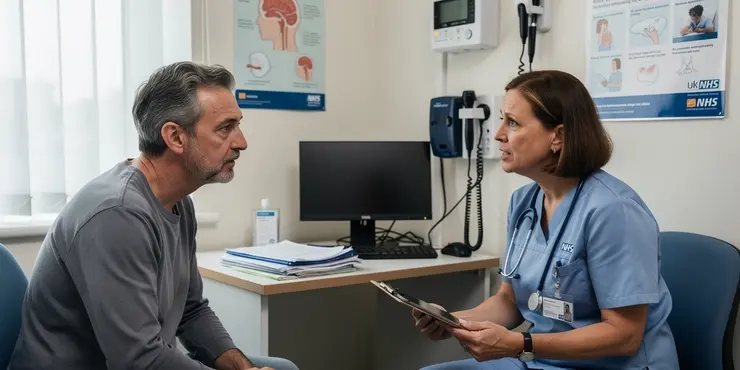
What is sleep apnea?
Relevance: 12%
-
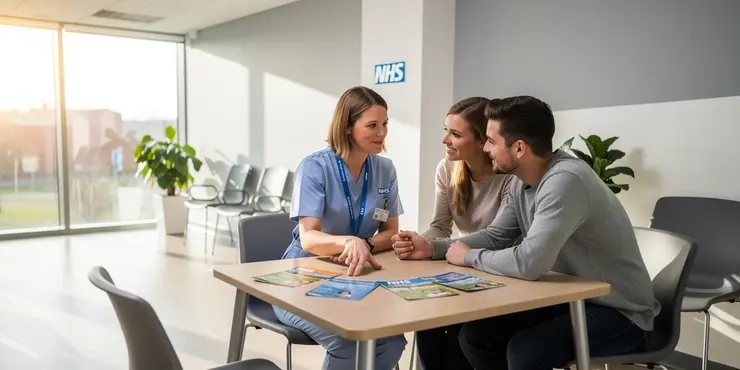
NHS - Chlamydia
Relevance: 12%
-
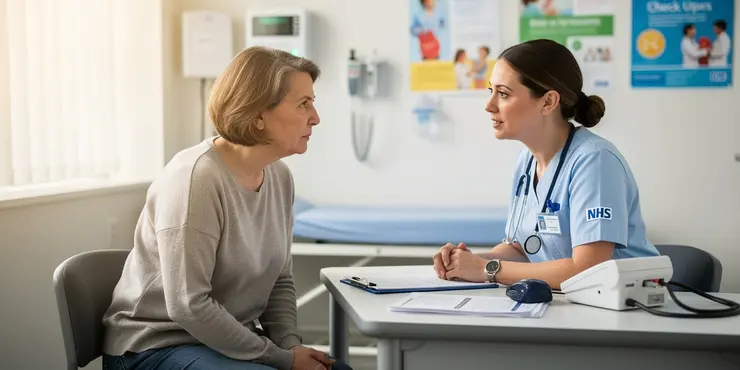
Why is high blood pressure called a 'silent killer'?
Relevance: 12%
-
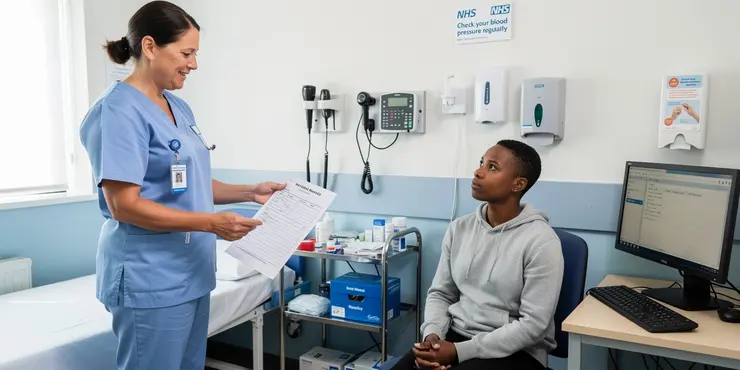
Can sewage pollution impact marine wildlife?
Relevance: 12%
-
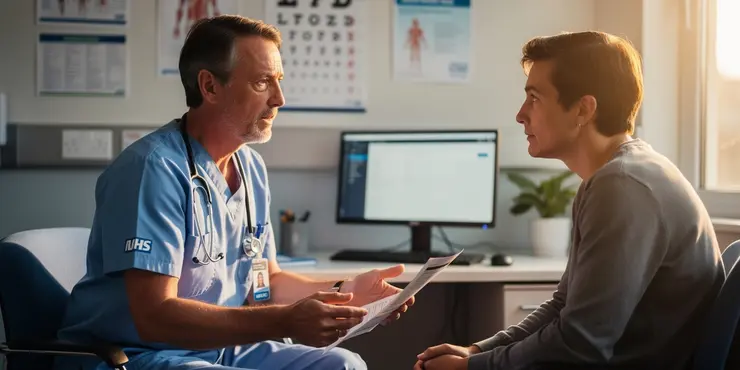
BSL Syphilis
Relevance: 12%
-

Is hypotony a medical emergency?
Relevance: 12%
Introduction
Appendicitis is a medical condition characterized by the inflammation of the appendix, a small, tube-like organ attached to the large intestine. It is a common condition that requires prompt medical attention. If left untreated, appendicitis can lead to serious complications. This article explores what happens if appendicitis is not treated in a timely manner.
Perforation of the Appendix
If appendicitis is left untreated, one of the most serious complications that can occur is perforation, or rupture, of the appendix. When the inflamed appendix bursts, it releases bacteria and other harmful substances into the abdominal cavity. This can lead to a severe infection known as peritonitis, which is the inflammation of the peritoneum, the lining of the abdominal cavity. Peritonitis is a life-threatening condition that requires emergency medical intervention.
Development of Abscesses
Another potential complication of untreated appendicitis is the formation of abscesses. An abscess is a collection of pus that forms as a result of the body's attempt to contain the infection. Abscesses can occur in the appendix itself or in the surrounding abdominal tissues. If an abscess ruptures, it can also lead to peritonitis. Managing abscesses may require draining the pus and antibiotic treatment.
Sepsis and Septic Shock
Without treatment, the infection from a ruptured appendix can spread throughout the body, leading to sepsis. Sepsis is a life-threatening condition caused by the body's extreme response to infection, potentially leading to septic shock, which is a severe drop in blood pressure that can result in organ failure and death. Immediate medical treatment is crucial to managing sepsis and preventing septic shock.
Long-term Health Implications
Even if the immediate life-threatening consequences are managed, untreated appendicitis can have long-term health implications. Chronic inflammation and repeated infections can cause scarring and adhesions in the abdominal cavity. These adhesions can lead to bowel obstructions and other gastrointestinal issues that may require additional surgery to resolve.
Impact on Healthcare Resources
From a broader perspective, untreated appendicitis can place a significant burden on healthcare resources. Emergency surgeries and intensive care treatments needed to address complications such as peritonitis and sepsis demand significant medical resources and can be costly. Timely treatment of appendicitis can prevent these complications, reducing the strain on healthcare services and improving patient outcomes.
Conclusion
In conclusion, leaving appendicitis untreated can lead to grave consequences, including perforation, abscess formation, sepsis, and long-term health issues. Early diagnosis and surgical intervention are crucial to avoid these complications and ensure a full recovery. Anyone experiencing symptoms of appendicitis, such as severe abdominal pain, should seek immediate medical attention. Prompt treatment can prevent potential complications and safeguard health and well-being.
Introduction
Appendicitis is when a small part of the body called the appendix gets swollen and sore. The appendix is like a tiny tube attached to the big part of your tummy. If you do not treat appendicitis, it can make you very sick. This article will explain what happens if you do not get it fixed quickly.
What Happens If the Appendix Bursts
If you do not get help for appendicitis, the appendix can burst. This is very serious. When it bursts, bad germs and stuff can get into your belly. This can give you a big infection called peritonitis. Peritonitis is when the inside of your tummy gets very sick. It is very dangerous, and you need to see a doctor right away.
Pus Buildup Called Abscesses
If you do not treat appendicitis, pus can build up. Pus is thick, yellow stuff your body makes to fight germs. This pus can make a lump called an abscess in your belly. If the abscess breaks open, you can get very sick with peritonitis. Doctors might need to clean the pus out and give you medicine to feel better.
Sepsis and Septic Shock
Without help, the infection from a burst appendix can spread in your body. This can cause something called sepsis. Sepsis is when your body gets very sick from germs. If it gets worse, you can have septic shock. Septic shock means your blood pressure drops a lot, and your organs may stop working. You need fast treatment for sepsis to stop septic shock.
Problems Over Time
If appendicitis is not treated, there can be problems later. It can make your intestines stick together or block them. This can happen again and again. You might need more surgeries to fix these problems.
Impact on Healthcare
Not treating appendicitis on time can be hard on hospitals. Fixing the big problems from untreated appendicitis takes a lot of work and costs a lot of money. Getting help early means you might not have to need big surgeries or stay in the hospital long.
Conclusion
If you do not treat appendicitis, it can be very dangerous. It can cause big infections, pus buildup, and other serious health issues. If you have bad belly pain, you should see a doctor quickly. Getting help fast can keep you healthy and safe.
Frequently Asked Questions
What is appendicitis?
Appendicitis is an inflammation of the appendix, a small tube-like structure attached to the large intestine.
Why does appendicitis require prompt treatment?
Appendicitis requires prompt treatment because if left untreated, the appendix can rupture, leading to serious complications.
What happens if appendicitis is left untreated?
If appendicitis is left untreated, the appendix can burst and cause peritonitis, a potentially life-threatening infection in the abdominal cavity.
How long can appendicitis go untreated before it becomes dangerous?
Appendicitis can become dangerous within 24 to 72 hours after symptoms begin, so it requires immediate medical attention.
What is a ruptured appendix?
A ruptured appendix occurs when the inflamed walls of the appendix break open, releasing its contents into the abdominal cavity and causing infection.
What are the symptoms of a ruptured appendix?
Symptoms of a ruptured appendix include severe abdominal pain, fever, nausea, vomiting, swelling in the abdomen, and a fast heartbeat.
What is peritonitis?
Peritonitis is an inflammation of the peritoneum, the lining of the abdominal cavity, usually caused by infection from a ruptured appendix or other sources.
What are the risks of peritonitis from appendicitis?
Peritonitis can lead to sepsis, organ failure, and death if not treated promptly and aggressively with antibiotics and possibly surgery.
Can untreated appendicitis lead to death?
Yes, untreated appendicitis can lead to death due to complications like peritonitis and sepsis.
Is there a risk of long-term complications if appendicitis is not treated?
Yes, long-term complications can include chronic pain, bowel obstructions, and infertility in women if pelvic infections occur.
How is appendicitis usually treated?
Appendicitis is typically treated with surgery to remove the appendix, known as an appendectomy, and sometimes with antibiotics as well.
Can appendicitis resolve on its own without treatment?
In rare cases, mild appendicitis may resolve on its own, but it is not safe to delay treatment as complications can arise suddenly.
How quickly should you see a doctor if you suspect appendicitis?
You should see a doctor immediately if you suspect appendicitis, as early diagnosis and treatment are crucial to prevent complications.
What are the early signs of appendicitis?
Early signs of appendicitis include pain around the belly button that shifts to the lower right abdomen, loss of appetite, nausea, and fever.
What diagnostic tests are used to confirm appendicitis?
Diagnostic tests for appendicitis may include a physical examination, blood tests, ultrasound, CT scan, and MRI.
Why is appendectomy the preferred treatment for appendicitis?
Appendectomy is preferred because it removes the inflamed appendix, eliminating the source of infection and preventing rupture.
What is the recovery time after an appendectomy?
Recovery time after an appendectomy varies, but most people can return to normal activities in a few weeks, although full recovery may take longer.
What preventive measures can be taken to avoid appendicitis?
There are no guaranteed preventive measures, but a diet high in fiber may reduce the risk of appendicitis by preventing constipation and promoting healthy bowel function.
How common is appendicitis?
Appendicitis is relatively common, affecting about 5% of the population at some point in their lives, most often between the ages of 10 and 30.
What are the potential complications of appendicitis surgery?
Potential complications of appendicitis surgery include infection, bleeding, and reactions to anesthesia, but serious complications are rare.
What is appendicitis?
Appendicitis is when your appendix gets sore and swollen. The appendix is a small tube in your belly. If you notice a pain in your lower right belly, tell an adult.
Helpful tools: Try using a picture of the body to find where the appendix is. Ask an adult to help you understand.
Appendicitis means the appendix is sore and swollen. The appendix is a small tube that is joined to the big intestine.
Why do doctors need to fix appendicitis quickly?
Appendicitis is when a small part of your belly, called the appendix, gets sick. When this happens, it can hurt a lot. If doctors don’t fix it fast, it can make you even more sick.
If appendicitis is not treated, the appendix can burst. This is very dangerous. So, it is important to see a doctor straight away if there is belly pain.
If someone thinks they have appendicitis, they should tell an adult and go to the doctor. Doctors can help make it better, often with surgery.
For help, you can use pictures to understand better or ask someone to explain it with simpler words. You can also use apps that read texts aloud if that helps you understand.
Appendicitis needs quick treatment. If you don't treat it, the appendix might burst. This can cause big problems.
What happens if appendicitis is not treated?
If appendicitis is not treated, it can cause a big problem. The appendix is a small part in your body. It can get really sick and burst. This is very dangerous and can make you very sick.
If the appendix bursts, germs can spread in your belly. This can cause a bad infection. You need to go to the hospital to get better.
It's important to see a doctor if you have bad pain in your belly. This can help you get the right care before it gets worse.
To help understand more, try using pictures or videos. Ask someone you trust to explain. You can also write down what the doctor says so you remember.
If appendicitis is not treated, the appendix can burst. This can cause a serious infection inside the belly called peritonitis. This infection can be very dangerous.
How long is it safe to ignore appendicitis?
Appendicitis is when a small part of your belly called the appendix gets very sore. If you do not see a doctor, it can make you very sick.
Usually, you should go to the doctor as soon as you feel pain. This can be a strong pain on the right side of your belly. You might also feel sick or have a fever.
If you wait too long, like a day or two, the appendix can burst. This is very dangerous.
If you think you have appendicitis, tell a grown-up and go to the doctor quickly.
Using simple language or drawing pictures can help you understand better.
Appendicitis is when your appendix hurts. It can get bad really fast, in 1 to 3 days. You should see a doctor right away if you feel pain from it.
What is a ruptured appendix?
Your appendix is a small part inside your tummy. It can sometimes burst or pop. This is called a "ruptured appendix." When this happens, it can make you feel very sick. You may need to see a doctor quickly.
Here are some ways to help understand:
- Use pictures or drawings to show where the appendix is.
- Ask a family member or friend to read with you.
- You can watch a simple video about how the body works.
A ruptured appendix happens when the appendix gets too full and bursts. When this happens, stuff from inside the appendix spills out into the belly and can cause an infection.
What happens when an appendix breaks?
Here are signs to watch for if the appendix breaks:
- Belly pain on the right side.
- Feeling sick or throwing up.
- Not wanting to eat.
- Belly feels swollen and tight.
- High temperature or feeling very hot.
If you feel these signs, tell a grown-up or see a doctor.
Drawing pictures or using a body outline can help understand where the pain is. Talking about how you feel using simple words helps too.
Signs of a burst appendix are:
- Very bad belly pain
- Feeling hot (fever)
- Feeling sick (nausea)
- Throwing up (vomiting)
- Belly getting bigger (swelling)
- Heart beating fast
If you see these signs, it’s important to tell an adult or see a doctor. You can also get help from picture cards or ask someone to read with you if you find words hard to understand.
What is peritonitis?
Peritonitis is when the inside of your belly is swollen and sore. It happens if there is an infection. You might need to see a doctor because it can be serious.
If you have peritonitis, your tummy might hurt a lot. You might also feel sick, throw up, or have a fever. It's important to tell a grown-up if you feel this way.
If you have trouble reading, try using an audiobook or asking someone to read to you. Also, you can use tools that read the text out loud for you.
Peritonitis is when the belly lining gets sore and swollen. This usually happens because of an infection, like when your appendix bursts or other problems.
What can go wrong if your appendix gets infected?
When your appendix is sick, it can cause a problem called peritonitis. This means that germs might spread inside your belly. This can make you very sick.
If this happens, you need to see a doctor quickly. They can help you feel better.
It's important to know about this so you can stay healthy!
Support Tip: You can ask someone to read with you or use pictures to help understand.
If peritonitis is not treated quickly with medicine, it can make you very sick. It can cause serious problems in your body, and you could die. Doctors use strong medicine and sometimes surgery to help.
Can not treating appendicitis cause death?
If you have a problem called appendicitis, it means your appendix is sore and swollen.
If you do not go to the doctor and get it fixed, it can be very dangerous.
In some cases, it can make a person very sick and even cause death.
If you have a stomach ache that does not go away, tell an adult or go see a doctor. They can help you.
Using pictures or videos about appendicitis can help you understand it better.
If you do not treat appendicitis, it can make you very sick. It can cause big problems like an infection in your belly called peritonitis or a serious illness all over your body called sepsis. These problems can be so bad that they can cause death.
It is important to get help from a doctor if you think you have appendicitis.
Here are some tools that might help you understand:
- Talk with a friend or family member: They can explain things and give you support.
- Use pictures: Looking at pictures can help you understand what appendicitis is.
- Ask your doctor questions: Doctors can answer your questions in a way that is easy to understand.
What happens if appendicitis is not treated?
Ignoring a sore appendix can be very bad. It might cause big problems later.
If you think you have appendicitis, you should see a doctor. They will know how to help you.
Sometimes people use pictures or videos to understand things better. You can ask your doctor to explain with these.
It is important to get help quickly so you can feel better soon!
Yes, there can be problems that last a long time. These problems can include feeling pain for a long time, having trouble with your tummy or bowels, and not being able to have babies for women if there are infections in the lower belly area.
Here are some tools and tips that can help:
- Ask a doctor or nurse to explain things if you don’t understand.
- Use pictures or drawings to help understand better.
- Remember to ask questions if you have them.
- Use a voice translator to listen to the text while you read.
How do doctors fix appendicitis?
When someone has appendicitis, it means their appendix is hurting and might be in trouble.
To make it better, doctors usually do a small operation to take the appendix out. This is called an "operation" or "surgery."
Sometimes, doctors also give medicine to help with the pain and any infection.
If you need help understanding this, ask a doctor to explain it with pictures or use a video to help explain.
Appendicitis is usually treated by taking out the appendix with an operation called an appendectomy. Sometimes, doctors also use medicine called antibiotics to help.
Can appendicitis get better by itself without help?
Sometimes, a sore appendix might get better by itself, but it is not safe to wait to get help because things can get worse quickly.
How soon should you see a doctor if you think you have appendicitis?
If you think you have appendicitis, go to the doctor fast. Appendicitis is when your appendix gets swollen.
Look for signs like: - A pain in your belly. It can start near your belly button and move to the lower right side. - Feeling sick or throwing up. - A fever. - Not wanting to eat.
Seeing a doctor quickly is important. They can help you feel better and stop the problem from getting worse.
You can ask a family member or friend for help. They can take you to a doctor or clinic.
If you think you might have appendicitis, you should go see a doctor right away. It's important to find out early and get treatment so you don't get sick.
What are the first signs of appendicitis?
Appendicitis means your appendix is hurting.
Here are some signs to watch for:
- Stomach pain, especially on the right side.
- Feeling like you want to throw up (nausea).
- No hunger (loss of appetite).
- Throwing up (vomiting).
- High temperature (fever).
If you think you might have appendicitis, ask an adult for help.
A helpful tool like a thermometer can check your temperature.
Appendicitis is when the appendix is not well. These are some signs that it might be happening:
- You might feel pain near your belly button. The pain can move to the lower right side of your belly.
- You might not feel like eating.
- You could feel sick in your tummy, like you might throw up.
- You might have a fever, which means your body feels hot.
If you feel these things, ask an adult for help. They might take you to see a doctor.
How do doctors know if someone has appendicitis?
Doctors use special tests to find out if a person has appendicitis. Here are some ways they check:
- Talk to the Patient: The doctor asks about the pain and symptoms.
- Physical Check: The doctor gently presses on the belly to see if it hurts more.
- Blood Test: A small needle takes blood from the arm to check for problems.
- Imaging Tests: Pictures of the inside of the body, like an ultrasound or CT scan, help see the appendix.
These tests help doctors decide if someone needs treatment for appendicitis.
If you need help with reading, try using a dictionary or ask someone to read with you.
To find out if someone has appendicitis, doctors might do some tests. These tests can include:
- A check-up where the doctor looks at and feels your tummy.
- A blood test to see if there is an infection.
- An ultrasound, which uses sound waves to look inside your tummy.
- A CT scan, which takes a special kind of picture inside your body.
- An MRI, which uses magnets to create detailed images of your insides.
If you need more help with reading, you can try using audiobooks or reading apps that read out loud.
Why do doctors remove the appendix when it is swollen?
Doctors take out the appendix when it is swollen because it can make you very sick if left inside. Removing it is the best way to stop the pain and prevent it from getting worse.
If you find it hard to read, you can ask someone to help you understand. Drawing pictures of what happens can also make it easier to see. There are apps with read-aloud functions that can help read words for you, too.
Doctors like to do an appendectomy because it takes out the swollen appendix. This stops the infection and makes sure it won't burst.
How long does it take to get better after appendix surgery?
When doctors take out your appendix, it is called appendix surgery. After the surgery, you need time to get better. This is called recovery time. Most people need a few weeks to feel good again.
Here are some things that can help you get better:
- Rest a lot and don't do hard activities.
- Eat healthy food and drink plenty of water.
- Follow your doctor's advice and take medicine if they gave you some.
If you have questions, ask an adult you trust to help you understand more.
After having your appendix removed, you will need some time to get better. Most people can do normal things after a few weeks. But it might take more time to feel all better.
How can you stop getting appendicitis?
Here are some simple ways to keep your appendix healthy:
- Eat plenty of fruits and vegetables. They help your tummy work well.
- Drink lots of water every day to stay healthy.
- Get some exercise. Moving your body helps your tummy.
- Wash your hands often to keep bad germs away.
These habits can help you stay healthy. If your belly hurts a lot, tell an adult or see a doctor.
We can't be sure how to stop appendicitis, but eating lots of fiber might help. Fiber helps keep your tummy healthy and keeps you from getting constipated.
How often do people get appendicitis?
Appendicitis is when a tiny part inside your tummy called the appendix gets sick. It happens to some people, but not everyone.
If you want to know more, ask a grown-up to help you or look at pictures or videos. Sometimes, drawing or playing with toys can help you understand better.
Appendicitis happens to some people. It affects about 5 out of every 100 people. It usually happens when people are between 10 and 30 years old.
What problems might happen after appendix surgery?
When doctors take out the appendix, some things might go wrong. Here are a few problems that could happen:
- Getting an infection: The place where the surgery was done might get germs and cause a sore.
- Bleeding: There could be extra bleeding from where the doctor did the surgery.
- Hurt belly: The belly might feel sore or hurt after the surgery.
- Bowel problems: The tubes inside your belly might not work well for a little while.
- This is very rare, but there can be other problems too.
It is really important to talk to your doctor if something feels wrong after surgery. There are people who can help you understand this better:
- A friend or family member can help explain things.
- The doctor or nurse can answer questions.
- Use pictures or drawings to help understand.
When you have surgery to take out your appendix, some things can go wrong. You might get an infection, bleed too much, or have a bad reaction to the medicine that makes you sleep. But these bad things do not happen often.
Useful Links
This website offers general information and is not a substitute for professional advice.
Always seek guidance from qualified professionals.
If you have any medical concerns or need urgent help, contact a healthcare professional or emergency services immediately.
Some of this content was generated with AI assistance. We’ve done our best to keep it accurate, helpful, and human-friendly.
- Ergsy carfully checks the information in the videos we provide here.
- Videos shown by Youtube after a video has completed, have NOT been reviewed by ERGSY.
- To view, click the arrow in centre of video.
- Most of the videos you find here will have subtitles and/or closed captions available.
- You may need to turn these on, and choose your preferred language.
- Go to the video you'd like to watch.
- If closed captions (CC) are available, settings will be visible on the bottom right of the video player.
- To turn on Captions, click settings .
- To turn off Captions, click settings again.
More Items From Ergsy search
-

What happens if appendicitis is left untreated?
Relevance: 100%
-

What causes appendicitis?
Relevance: 72%
-

What are the potential complications of appendicitis?
Relevance: 70%
-

Is appendicitis hereditary?
Relevance: 70%
-

What is the treatment for appendicitis?
Relevance: 69%
-

What is Appendicitis?
Relevance: 69%
-

Can appendicitis go away on its own?
Relevance: 65%
-

What is the likelihood of needing surgery for suspected appendicitis?
Relevance: 65%
-

How is appendicitis different from other causes of abdominal pain?
Relevance: 63%
-

How is appendicitis diagnosed?
Relevance: 62%
-

Can appendicitis occur more than once?
Relevance: 61%
-

Where is the pain located when you have appendicitis?
Relevance: 58%
-

What are the common symptoms of appendicitis?
Relevance: 58%
-

Can appendicitis be treated with antibiotics?
Relevance: 58%
-

How soon should you see a doctor if you suspect appendicitis?
Relevance: 57%
-

Can diet or lifestyle changes prevent appendicitis?
Relevance: 55%
-

Is appendicitis common in any particular age group?
Relevance: 55%
-

Are there any risks associated with untreated ADHD?
Relevance: 47%
-

Are there any complications associated with untreated BPH?
Relevance: 47%
-

What is the mortality rate of untreated bubonic plague?
Relevance: 44%
-

What happens if Lyme disease is left untreated?
Relevance: 43%
-
What are the long-term effects of untreated eating disorders?
Relevance: 42%
-

What complications can arise from untreated hypotony?
Relevance: 42%
-

Can gonorrhoea cause complications if left untreated?
Relevance: 34%
-

Can you live without an appendix?
Relevance: 27%
-

Are there any risk factors for appendicitis?
Relevance: 26%
-

Are there any long-term effects of gonorrhoea?
Relevance: 17%
-

Stomach ache and abdominal pain
Relevance: 15%
-

What is Gonorrhoea?
Relevance: 15%
-

Can gonorrhoea be asymptomatic?
Relevance: 13%
-

What is chlamydia?
Relevance: 13%
-
Chlamydia: The Silent Threat
Relevance: 13%
-

Can scabies cause complications?
Relevance: 13%
-

Why is sleep apnea dangerous?
Relevance: 13%
-

What is sleep apnea?
Relevance: 12%
-

NHS - Chlamydia
Relevance: 12%
-

Why is high blood pressure called a 'silent killer'?
Relevance: 12%
-

Can sewage pollution impact marine wildlife?
Relevance: 12%
-

BSL Syphilis
Relevance: 12%
-

Is hypotony a medical emergency?
Relevance: 12%


